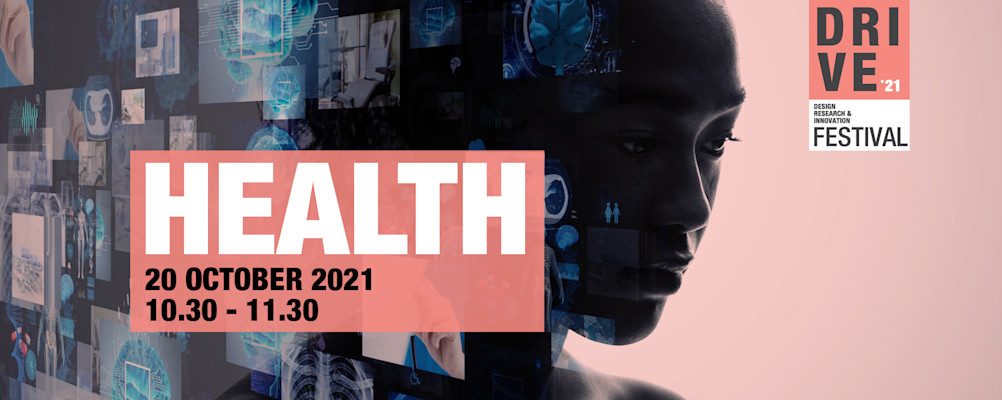DRIVE 2021 - Health
Just like last year, the Design Research & Innovation Festival took place in De Effenaar, during the Dutch Design Week. And just like last year, we - together with Design United turned it into a hybrid and interactive event that you could join from home. Five different themes in five days. Health is on Wednesday 20 October, from 10.30 - 11.30. Where we want to further explore which methods ensure that healthcare providers and patients are more involved in the healthcare system of the future, and what this could look like.







